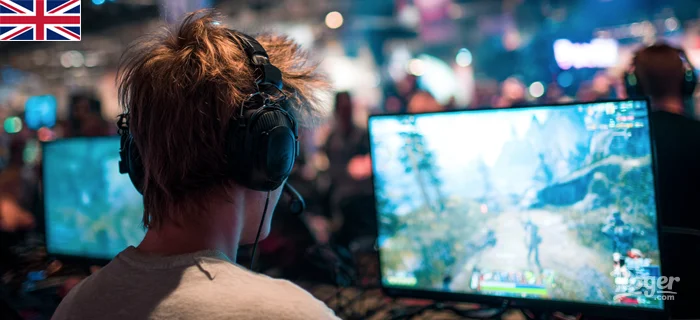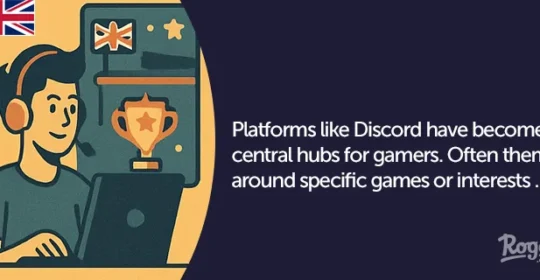Esports has grown from amateur gaming tournaments to a global phenomenon on the same level as mainstream sports in terms of viewership and revenues.
Amateur competition is now a billion-pound industry with sponsors, teams, and sell-out stadium audiences.
As esports continues to expand, its overlap with the casino industry is increasingly hard to ignore. From casino-themed betting pools to loot boxes, the lines between gaming for money and gaming for fun are being blurred.
As per ESports Insider UK insights, the gap between gaming and gambling is closing rapidly, along with trends showing an increase in people betting on esports tournaments and games.
Table of contents
Esports as a competitor and business force
The most popular esports games of the contemporary age, League of Legends, Counter-Strike 2, and Valorant, are no longer just games.
They're professional sports with leagues, coaches, and massive followings.
Esports has opened itself up to potential investors and media partners mainly because of the high percentage of viewers that rivals traditional athletics.
This mainstreaming has aligned it with both the broader world of gaming culture as well as the broader entertainment economy.
This growth has naturally drawn attention from adjacent industries, particularly gambling. Where there is a fervent fan base and unpredictable outcomes, there is also the potential for gambling.
? Sportsbooks everywhere have caught on to this and started offering odds on esports competitions.
The esports framework, built on data and precision, lends itself readily to gambling sites that live on numbers and odds-setting.
Betting on esports: a natural evolution
Esports betting has also followed the same path as fantasy sports. What was once friend-to-friend betting between enthusiasts has become a real betting market. UK bookmakers now allow bettors to bet on match victors, kills count, and even map-by-map play.
One of the biggest differences? The average esports bettor is often highly knowledgeable.
Many are actually players themselves, with a better understanding of the game than the average follower of the conventional sports paradigm.
This creates a betting clientele that is not only engaged but also strategic.
But esports gambling is more than match betting. Fantasy esports, skin gambling, and loot box systems add new ways that fans can wager either money or virtual money or both of real-world value.
These add new layers of ambiguity to the line between gaming and gambling, often in ways that bypass traditional distinctions.
Regulation, responsibility and risk
With increasing esports gambling, the regulatory attention also increases. The UK Gambling Commission has been worried about loot boxes and skin betting, particularly as they are so widespread among children.
There are also ethical concerns. Are loot boxes gambling? What is the responsibility of the game developer when monetisation is imitating betting mechanisms?

As the arguments continue, nations across the globe are investigating regulatory measures.
Some UK-based esports organisations have already begun taking proactive steps. With regulators' assistance, the utilisation of age verification systems, and the introduction of responsible gambling controls, they are trying to bring esports betting in line with the already existing sports betting standards.
But the interactive nature of gaming is such that regulation must keep changing quickly in order to stay effective.
The role of data and technology
One of the most significant reasons both gaming and esports are so closely linked is quite simply the sheer amount of information that is available.
Every move in a game is recorded, monitored, and tracked, so bookmakers can offer real-time odds and live, in-play betting.
This level of detail is the foundation of live betting. Platforms like YouTube and Twitch are now integrating third-party applications that allow users to bet and track odds in real time throughout the game.
It is no longer about playing for the ultimate result. Each second is a chance to win, turning onlookers into players.
A cultural convergence
Apart from the figures, there is also a cultural shift in progress. There are no longer just players or fans. They are creators, influencers, analysts, and sometimes gamblers.
This multifaceted persona is building a hybrid entertainment environment in which the old titles no longer apply.
Current games are more apt to show this convergence. FIFA, NBA 2K, and CS2 all contain in-game economies, randomised rewards, and collectables, features similar to gambling structures.
Contrarily, gambling brands are aligning with esports teams, sponsoring events, and generating visibility in the community.
For the younger game players, like Gen Z and Gen Alpha, the idea of gaming for entertainment is followed by routes for financial returns.
The intersection of gaming, esports, and gambling is giving rise to a new kind of entertainment space. One in which boundaries are dissolved, roles are blurred, and the pace of change quickens.
While the convergence offers new possibilities for operators and fans, it poses basic questions about regulation, responsibility, and future digital play.
As esports expands, so too does the need for balance between control and liberty, and dollars and enjoyment.





